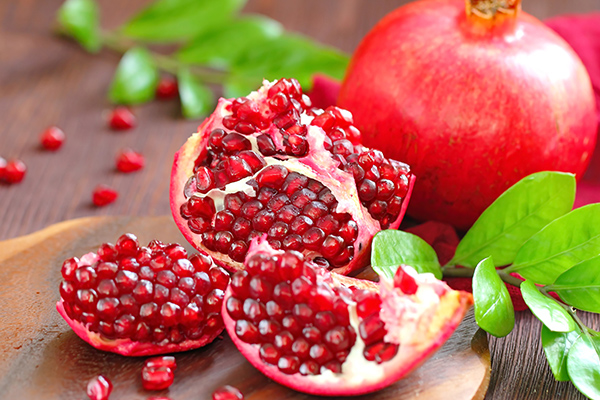Pomegranate properties and their benefits
Discover the properties and benefits of pomegranate, one of the fruits with the most antioxidant properties that helps you lose weight. We tell you what it is for
fresh food
Share

Pomegranate is a large berry in the shape of a balloon with a thick and shiny skin, which hides a multitude of seeds full of juice inside it. Its properties, both nutritional and therapeutic, make it more than just the most attractive fruit of all times, symbol of love and fertility of the Romans.
Benefits of pomegranate
The benefits of pomegranate are numerous, and it has had a close relationship with health throughout history. This fruit, being a source of vitamin C, contributes to the normal working of the immune system, to reducing tiredness and fatigue and to the formation of collagen, which is so important for joints and bones. It is also a source of vitamin K, which contributes to blood clotting and helps to keep bones in normal condition, in addition to providing fibre which favours the intestinal transit.
An ideal, sweet and juicy fruit, to eat ripe between the months of September and November.

Ways to eat pomegranate
To eat pomegranate, you first need to choose a good piece.
It needs to be ripe, so look for the one that is bright in colour with hints of brown, a thin and strong skin, without cuts and in terms of weight: the more it weighs, the juicier it is.
Once the seeds have been removed, it is advisable to leave them to rest in the fridge, and if you don’t eat them all, you can store them in an airtight container where they can last for around three days in the fridge and 6 months in the freezer.
It is always a good idea, at this time of year, to have some pomegranate in your fridge and take advantage of it in its simple ways to be eaten: whether fresh, in juice, added to yoghurt, ice cream or a salad.






